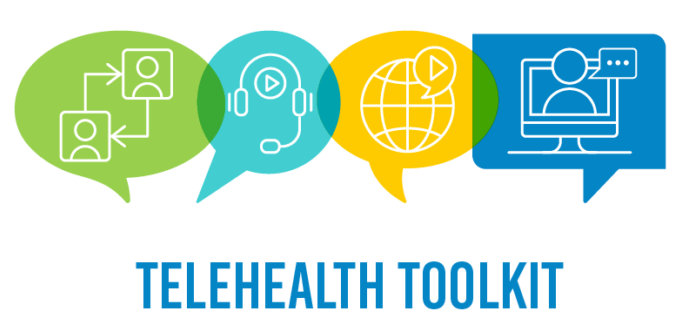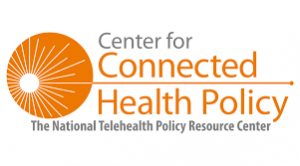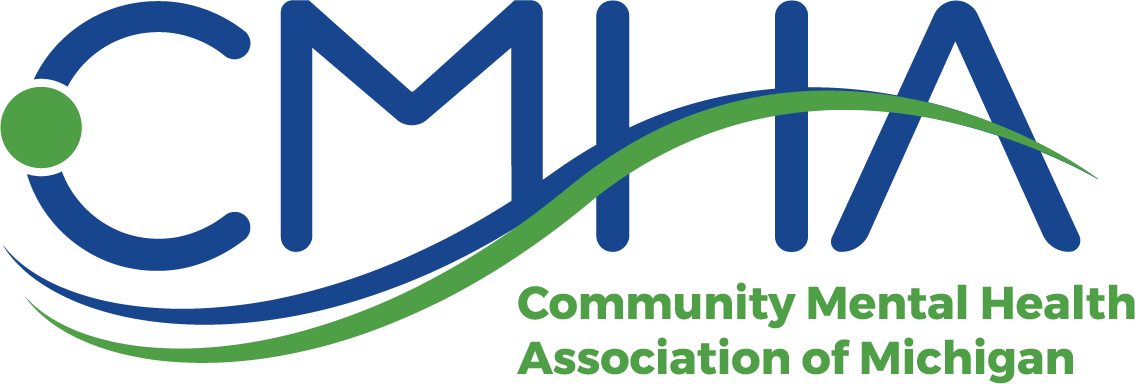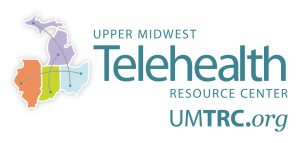Behavioral Telehealth Resource Center
Behavioral Telehealth Resource Center for Mental Health Practitioners
The Behavioral Telehealth Resource Center works to address the ongoing needs for education, technical assistance and telehealth best practices for Mental Health Practitioners. Telehealth reduces barriers due to geography, transportation, time and workforce shortages. This project is supported by funds from the Michigan Health Endowment Fund and will foster the use of telehealth approaches beyond the pandemic and solidify these as a permanent part of Michigan’s behavioral health landscape.
Michigan Medicaid Proposed Policy 2223 – Telemedicine (click here)
Call to Action – MDHHS Proposed Policy 2223-Telemedcine will no longer reimburse for services provided through audio-only. The CMHA Behavioral Telehealth Resource Center believes the removal of audio-only service delivery creates a health disparity, leading to reduced health outcomes for affected clients. We are asking CMHA members and partners to submit Voices for Change stories. These are specific examples or situations where behavioral telehealth services are best provided or can only be provided by audio-only delivery. Please send your stories and public comments directly to Laura Kilfoyle (kilfoylel@michigan.gov) by September 20, 2022 and copy Amy Stagg, astagg@mphi.org.
(click here ) Read CMHA Behavioral Telehealth Resource Center Telemedicine Policy Response!
CMHA 
Register Now – CMHA Resource Center Training Opportunities
Improve your Behavioral Telehealth Provider Skills. The statewide telehealth provider survey identified areas of needed training and education. Please register now to join us this Fall! Topics include: Effective Virtual Group Counseling and Zoom, Zoom – Helping Virtual Sessions Take Off.
Click Here for Program Descriptions and Registration Information
—
CMHA Consumer Telehealth Survey Report
CMHA and Public Sector Consultants conducted a telehealth survey with consumers or a person’s caregiver. There were 2,347 survey responses. The CMHA Behavioral Health Consumer Survey Summary highlights key findings and summarizes the results. For additional information, please read the CMHA Provider Telehealth Report.
 UPDATES
UPDATES
Overview:
In July, MDHHS held informational webinars for providers and community partners to learn about proposed post-PHE telemedicine policies and how to comment or share input during the 35-day public comment period on permanent telemedicine policy updates. MI Medicaid is proposing to sunset audio-only billing codes which will negatively impact behavioral health service delivery. Please review the CMHA Call to Action for audio-only service delivery.
MDHHS Response to PHE Extension & Telemedicine Guidance (click here)
MDHHS COVID-19 response policies will remain in effect, including the MDHHS COVID 19 Encounter Code Chart, until MDHHS informs providers.
MDHHS Behavioral Telemedicine CMHSPs and PIHPs Usage Data (click here)
Click here to view specialty behavioral health beneficiaries CMHSPs and PIHPs encounter/consumer data for Substance Use Disorder and Mental Health or Developmental Disability from January 2020 – March 2022.
CMHA Post Pandemic Telehealth Recommendations: Michigan Medicaid Telemedicine Policies
- CY 2023 Proposed Physician Fee Schedule (click here)
- Telehealth & Behavioral Health Highlights (click here)
Federal Public Health Emergency Extension
Xavier Becerra, Secretary of Health and Human Services renews Federal Public Health Emergency. The new expiration date is 10/15/2022.
Consolidated Appropriations Act of 2022: Extends Telehealth Flexibilities
Click here to view Telehealth Policy Impacts of the 2022 Consolidated Appropriations Act.
Post-PHE HIPPA Compliance for Audio Only
Guidance on how HIPPA rules permit covered health care providers and health plans to use remote communication technologies for audio-only telehealth is available from the OCR brief. Learn More!

PRISMM TELEMENTAL HEALTH TOOLKIT RESOURCES AND TOOLS
Strategies for telehealth patient engagement
The Preventing Suicide in Michigan Men (PRiSMM) project has developed an online Telehealth Toolkit. The toolkit contains:
- Telehealth practice simulations
- Men specific needs and considerations
- Identify and assist resources
- Care cards
- Mobile apps and Digital Prescription Therapies
Rating the States on Telehealth Best Practices: A Toolkit for a Pro-Patient and Provider Landscape
This toolkit aims to help policymakers take the next step toward a quality-oriented and innovative health system by ensuring their state laws on telehealth remove barriers for those living in rural communities or underserved urban areas. See pages 4-9 for an easy to read overview of best practices in each state.

The HHS-OIG has released a data snapshot that provides information to policymakers and other stakeholders about the relationship between beneficiaries and providers of telehealth services. These data are critical to informing decisions about how to structure telehealth services on a permanent basis.
Additional HHS-OIG telehealth reports, both related to the use of telehealth to deliver behavioral health services to Medicaid beneficiaries. HHS-OIG breaks up the study into two reports:
- Challenges with Using Telehealth to Provide Behavioral Health Services to Medicaid Enrollees. This report highlights that additional provider and enrollee training, stable internet connectivity, addressing technology costs and policies around privacy of personal information will address challenges and help States meet the behavioral health needs of Medicaid enrollees.
- Opportunities to Strengthen Evaluation and Oversight of Telehealth for Behavioral Health in Medicaid. This evaluation report takes a closer look at state data collection and evaluation efforts and notes that only a few states have evaluated the effects of telehealth on behavioral health services.
The above reports are based on surveys the HHS-OIG conducted with Medicaid Directors from 37 states and stakeholders in 2020. The HHS-OIG will apply the findings from their report series to support recommendations to the CMS around post-pandemic telehealth policy.
Resources & Partner Organizations
Below are resources to help develop and strengthen the statewide infrastructure needed to foster the sound use of telehealth approaches:
FAIR Health Monthly Regional Tracker
The Monthly Telehealth Regional Tracker uses FAIR Health data to track how telehealth is evolving on a monthly basis. Select a month and one of the four US census regions to display an infographic that includes: volume of claim lines, top five procedure codes and top five diagnoses.

Recordings Available! Center for Connected Health Policy (CCHP) Fall 2022 Telehealth & Medicaid Webinars
Impact of Audio-only Telephone in Delivering Health Services Report
The Center for Connected Health Policy (CCHP) has released a small study report funded by a grant from the Federation of State Medical Board Foundation. This report shares information from federally qualified health centers (FQHC) on the use of audio-only during the pandemic and may be used to guide future payment policies and Medical Board regulations.

The Future of Telehealth After COVID-19
Bipartisan Policy Center released its findings from extensive telehealth research and Medicare data analysis to inform pragmatic policy decisions that can create a path forward for telehealth policy—policy that will continue to be evidence-based and will promote better outcomes for Medicare beneficiaries and value for the Medicare program.
What Eliminating Barriers to Interstate Telehealth Taught Us During the Pandemic
Read about how over the past year, states’ temporary COVID-19 flexibilities for out-of-state licensure began expiring for most states. This research report talks about its impact and the challenges policymakers are now faced with important decisions that will affect provider licensure and patient access to care across state lines — beyond the current pandemic.
Telehealth Resource Centers funded by HRSA and set up regionally
- Learn more at: https://telehealthresourcecenter.org/about-us/
- Michigan’s Region: Upper Midwest Telehealth Resource Center
Additional Resources and Links
The Emergency Broadband Benefit will provide a discount towards broadband service and on the purchase of a laptop, desktop computer or tablet.
- Please share this information with the communities you serve.
Medicare and Telehealth: Coverage and Use During the COVID-19 Pandemic and Options for the Future.
- A Kaiser Family Foundation brief presents an analysis of Medicare beneficiaries’ utilization of telehealth using CMS survey data from 2020.
American Psychiatric Assn (APA) National Public Opinion Survey on Telehealth
- The APA completed a national public opinion poll finding that the expansion of telehealth is welcomed by most Americans. A large portion of the population have used telehealth services; more than half say they would use telehealth for mental health services; and more than 30% say they prefer telehealth. To review the full APA 2021 Public Opinion Poll: Access to Care, click here.
Behavioral Health Provider Experiences with Telehealth in MI during COVID-19
- Full Report – Behavioral Health Workforce Research Center at University of Michigan School of Public Health
- IHPI State Brief
COVID-19 Resource Page from MTMServices: https://www.mtmservices.org/covid






